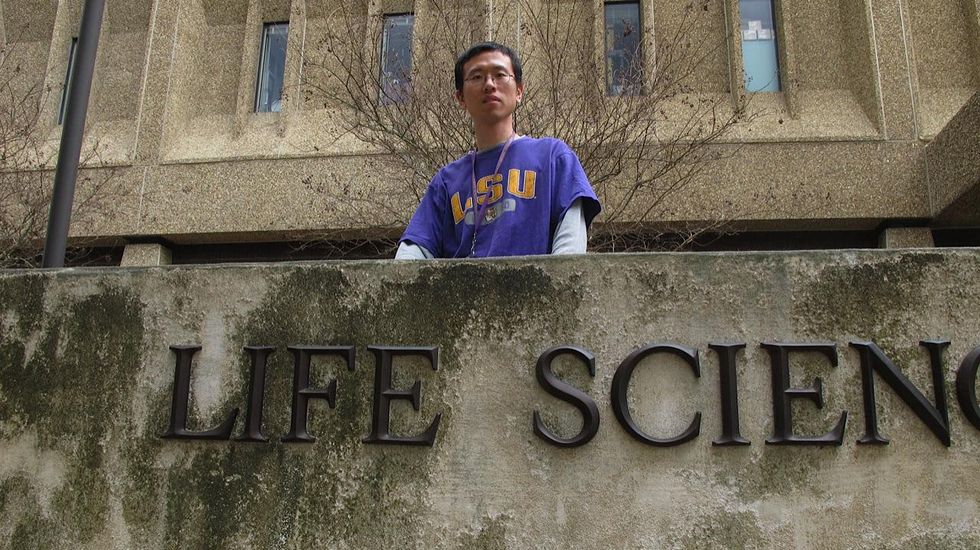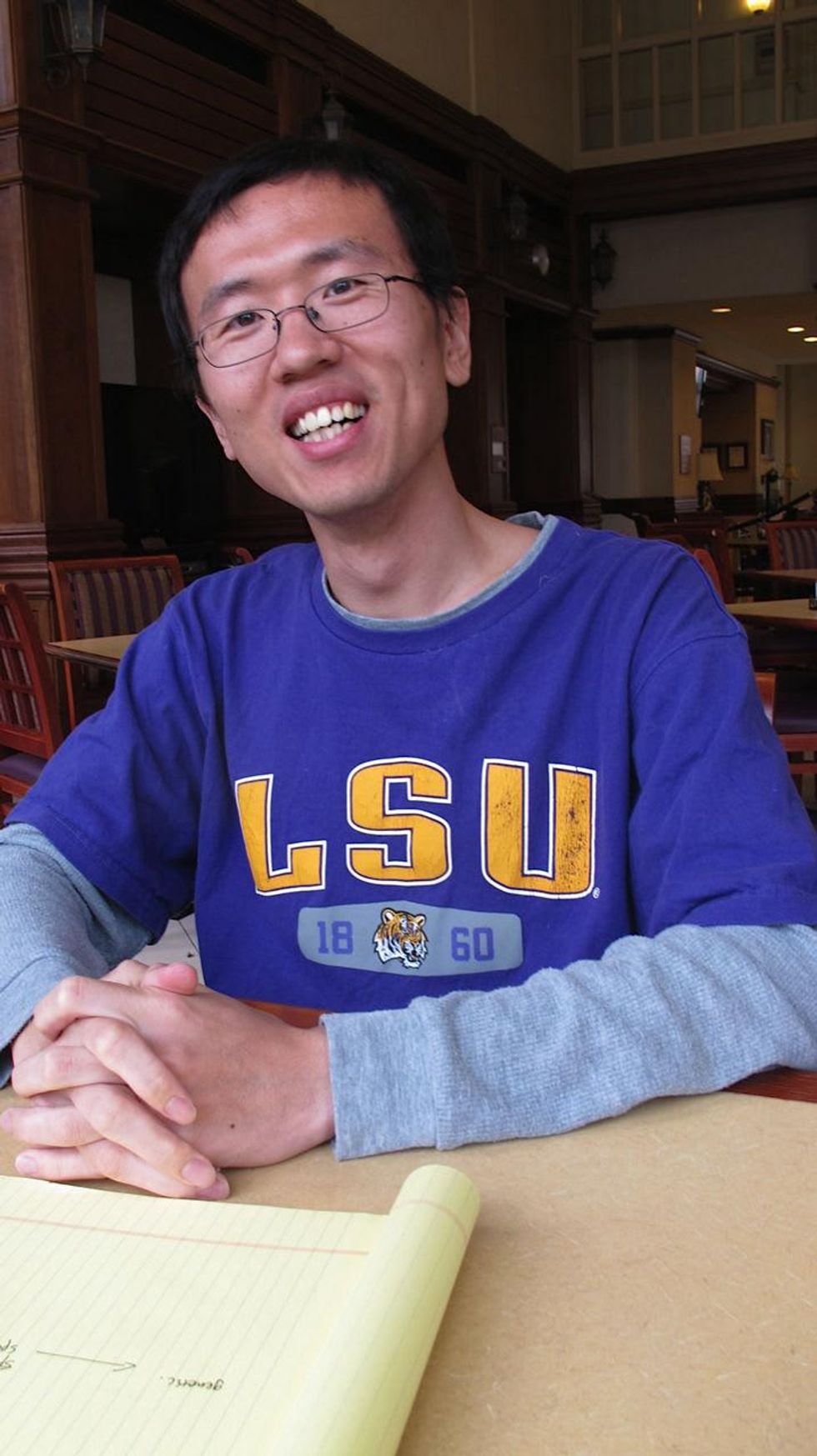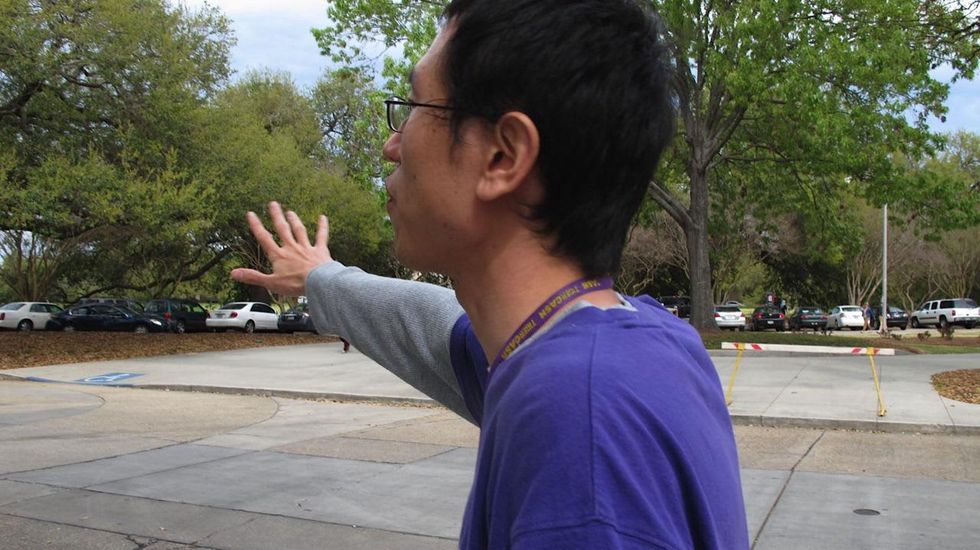Tattered Jeans
Return to Louisiana: The Ant Man, the Gulf Oil spill, lessons we've learned — and those we haven't
Mar 31, 2013 | 1:15 pm
Editor's note: In 2010, Katie Oxford filed a series of riveting columns from the heart of the Gulf oil spill disaster. She recently returned to Louisiana. This is the first of her reports.
On the first day of spring I headed back to Louisiana. I wanted to catch up with friends and learn how things were going three years after the Gulf oil spill.
First on the list was my friend and favorite teacher, Xuan Chen, who some of you may remember as the “Ant Man.” In an email, Xuan called the little buggers “my babies.”
Ants are where it’s at, folks.
This time, I met Xuan on the LSU campus, not in the marsh. He came walking up briskly with that Xuan smile that makes all the world seem a better place.
Next month (at age 29) he will take his general examination for his PhD in Entomology (the study of insects). It sounded nerve racking. Five people will fire any kind of question for three hours! The good news is, immediately afterwards, he’ll be told whether he passed the exam. I have no doubt.
Refresher course
Sweet as ever and smarter too, Xuan gave me a refresher course in ecology before discussing his latest findings in the field. “Ecology is very big,” he said, “which is my favorite part. It affects so many things.” He described the coastal ecosystem as fragile, but important for two reasons. Ecology and economics.
“If you saw them under a microscope,” he smiled, “you’d see all different colors and shapes.”
While he explained eloquently throughout the day how one study made by one scientist in his/her own field is no less important than others, one thing occurred to me early on. Ants are where it’s at, folks.
Xuan reminded me why it’s important to study these itty-bitty insects that few see, like even less. Ants are good indicators of what’s happening in the environment. They serve as a food resource but, also, ants are fabulous engineers. When they build nests in the ground it changes the soil in a good way. By moving seeds, they jump start the pollination process.
Another important thing about ants is something called “mutualism.” It has to do with the relationship between individuals of different species being mutually beneficial. Xuan must have seen the look on my face. He quickly added, “They help each other to live better.”
Ah, yes. Amen.
There’s more to the ant than meets the public’s eye. “They’re very pretty,” Xuan said. “If you saw them under a microscope,” he smiled, “you’d see all different colors and shapes.”
So far, scientists have identified 12,500 different species of ants. Even more amazing, they estimate that there are 30,000! Then Xuan brought up “biomass.” Get this. It’s believed that the weight of all the ants in the world equals the weight of all the humans.
Oil spill impact
When we moved to talking about the impact of the oil spill, Xuan was quick to make a point straight away — that it will take another five to 10 years (at least) of gathering more information before we can know the full effects. Or, as Xuan thought, probably 20. I couldn’t agree with him more. Mother Nature has her own clock. If only we, the public, would listen better. If only there were more stewards like Xuan.
Ants have dramatically diminished both in species and in numbers. “Except for fire ants,” Xuan said.
Since the oil spill, he’s studied the coastal region between Padre Island and Florida, specifically, in the wetlands and in the dunes. From the graphics that Xuan drew for me, ants have dramatically diminished both in species and in numbers. “Except for fire ants,” he said.
Interestingly, fire ants, he explained, love new environments. Therefore, whether the environment has changed due to nature disturbance (hurricanes) or human disturbance (oil spill) they remain standing and a lot more. They beat up, so to speak, on the other species trying to return.
Long-term study
Xuan, as do other scientists, believes that the influence of the Gulf oil spill requires a long-term study. In order for this to happen, money, scientists/students, and the public’s attention is required. In Xuan’s view, “Everyone’s work is important. Ecologist, economists, biologists, engineers, attorneys, bio-chemists, public health.” Teamwork.
Similarly, to Xuan, the study of insects, while not as easy to see, is just as important as studying birds, fish, and other species. “Every kind of animal, plant, micro-organism is important.” Yet interestingly, if you Google animals impacted by the BP oil spill, you’ll be hard pressed to find any mention of insects, much less ants.
If you Google animals impacted by the BP oil spill, you’ll be hard pressed to find any mention of insects, much less ants.
When it was time for Xuan to return to the Life Sciences building, I walked with him awhile and he kindly directed me to places that he thought might be of interest. Along the way, I asked more questions. Like if, after he received his doctorate, he wanted to be called Dr. Chen.
“No,” he smiled. “I want people to just call me ‘Xuan.’ If they want to say something out of respect, ‘Mr. Xuan.’”
I also wondered, whether later, Xuan would stay in this area and study the wetlands further. His answer came earnestly. “I want to study all kinds of eco-systems for the rest of my life.”
When we parted at a corner, Xuan handed me a gift. A key chain. It was made of wood, with the face of a tiger carved on the front, connected to a metal ring by tiny brown beads and a macramé rope.
Walking back to the hotel, I reflected on the lessons of this day and thought of a word that Xuan often used. Diversity. I recalled something he’d said just before we’d gotten up from the table. After I thanked him for sharing his gifts, one of which is being a great teacher, his eyes looked downward and he moved in his chair. “I’m a hard worker,” he smiled. “That’s my only gift.”
Such is this modest young man who holds a brain as big as his heart. Moves quietly in the marsh, perhaps unseen, but who sees. One who changes life a little like the ants change soil. In a good way.



